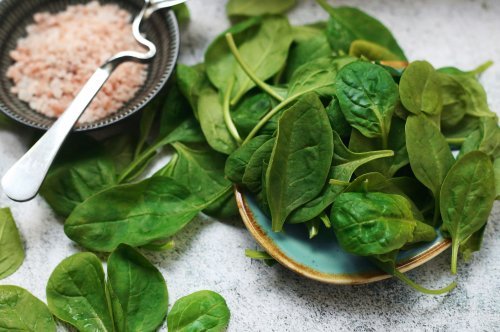The Healing Power of Turmeric: Why You Should Add This Ayurvedic Herb to Your Daily Routine

The Healing Power of Turmeric: Why You Should Add This Ayurvedic Herb to Your Daily Routine
Turmeric, often called the "golden spice," is a staple in many kitchens, particularly in South Asian and Middle Eastern cuisine. But beyond its culinary uses, turmeric has been celebrated for its healing properties for centuries, particularly in Ayurveda, the ancient Indian system of medicine. In this post, we’ll explore the myriad benefits of turmeric, why it’s worth incorporating into your daily routine, and how you can do so effectively to reap the maximum benefits.
What is turmeric?
Turmeric (Curcuma longa) is a flowering plant from the ginger family (Zingiberaceae), native to Southeast Asia. The plant’s rhizomes, or underground stems, are dried and ground into a bright yellow powder. This powder is used as a spice in cooking, as a dye for textiles, and, most notably, as a healing herb in traditional medicine systems like Ayurveda and Traditional Chinese Medicine (TCM).
The active compound in turmeric, curcumin, is primarily responsible for its powerful health benefits. Curcumin is a polyphenol known for its anti-inflammatory, antioxidant, and healing properties. However, turmeric contains other bioactive compounds like turmerone and demethoxycurcumin, which also contribute to its therapeutic effects.
Turmeric in Ayurveda: An Ancient Healing Herb
Ayurveda is one of the oldest known medical systems, dating back over 5,000 years. In this holistic approach to health, turmeric is considered a "superior herb" due to its vast array of healing properties. Ayurveda views turmeric as a balancing herb, capable of harmonizing the body's energies (known as doshas) and treating a variety of ailments.
- Vata (Air and Space): Turmeric is believed to calm excess Vata, making it useful for conditions like dryness, anxiety, and irregular digestion.
- Pitta (Fire and Water): Turmeric is also seen as a cooling herb for individuals with excess Pitta, helping to alleviate inflammation and irritation in the body.
- Kapha (Earth and Water): For those with an excess of Kapha, turmeric can help reduce congestion, improve circulation, and boost metabolism.
In Ayurveda, turmeric is used in various forms: powdered turmeric, turmeric oil, turmeric paste, and even as a part of herbal concoctions and teas. It’s believed to support digestion, detoxify the body, enhance mental clarity, and even promote healthy skin.
The Health Benefits of Turmeric
1. Anti-Inflammatory Properties
One of the most well-documented benefits of turmeric is its potent anti-inflammatory effect. Chronic inflammation is thought to be a root cause of many health problems, including arthritis, heart disease, diabetes, and even cancer. Curcumin, the active compound in turmeric, inhibits molecules that play a key role in inflammation, such as nuclear factor kappa B (NF-kB), which regulates the immune response.
By reducing inflammation, turmeric can help alleviate symptoms of chronic conditions like rheumatoid arthritis, osteoarthritis, and inflammatory bowel disease (IBD).
2. Antioxidant Power
Turmeric is packed with antioxidants, which help neutralize free radicals and protect the body from oxidative stress. Free radicals are unstable molecules that can damage cells, contributing to aging and the development of chronic diseases. Curcumin, along with other compounds in turmeric, acts as a scavenger of these harmful molecules, thus promoting overall health and longevity.
3. Supports Brain Health
Emerging research suggests that turmeric may have a positive impact on brain health and cognitive function. Curcumin is believed to increase levels of brain-derived neurotrophic factor (BDNF), a protein that supports the growth and maintenance of neurons. Low levels of BDNF have been associated with conditions like Alzheimer’s disease and depression.
Additionally, turmeric’s anti-inflammatory and antioxidant effects may protect the brain from damage and support mental clarity and focus. Some studies even suggest that turmeric could help reduce the risk of age-related cognitive decline.
4. Improves Digestion and Gut Health
Turmeric has long been used in Ayurveda to promote digestive health. It can stimulate bile production, aiding in the breakdown of fats and improving the overall digestive process. Turmeric’s anti-inflammatory properties also help soothe the digestive tract and reduce symptoms of bloating, gas, and indigestion.
Moreover, turmeric has been shown to be beneficial for individuals with conditions like irritable bowel syndrome (IBS) and inflammatory bowel diseases (IBD) such as Crohn’s disease and ulcerative colitis. By reducing inflammation and balancing gut flora, turmeric can help support gut health and promote a healthy microbiome.
5. Enhances Skin Health
Turmeric has been used for centuries in traditional beauty treatments due to its ability to support healthy skin. The spice is rich in antioxidants and anti-inflammatory compounds that can help reduce acne, eczema, psoriasis, and other skin conditions. Curcumin helps regulate the skin’s oil production, while its anti-inflammatory effects reduce redness and irritation.
Turmeric is also known to promote wound healing and can help prevent scarring. Applying turmeric paste or oil directly to the skin can accelerate healing and give the skin a natural glow. It’s no wonder that turmeric is a key ingredient in many skincare products today.

6. Promotes Heart Health
Turmeric’s ability to reduce inflammation and oxidative stress makes it beneficial for cardiovascular health. Chronic inflammation and oxidative damage to blood vessels and the heart are key contributors to heart disease. Curcumin helps improve endothelial function, which is crucial for regulating blood pressure, blood clotting, and overall heart health.
Additionally, turmeric can help reduce LDL (bad) cholesterol levels, thereby preventing the buildup of plaque in the arteries and reducing the risk of atherosclerosis (hardening of the arteries).
7. Boosts Immunity
Turmeric is a powerful immune system booster. It has natural antibacterial, antiviral, and antifungal properties, which help protect the body from infections. Regular consumption of turmeric can enhance the body's immune response, reducing the likelihood of colds, flu, and other infections.
Curcumin has also been shown to activate immune cells like T-cells, B-cells, and macrophages, which play a key role in defending the body against pathogens. Moreover, turmeric can help modulate the immune system to prevent autoimmune diseases where the immune system attacks the body's own tissues.
8. Helps with Weight Management
Turmeric has been studied for its potential to aid in weight management. Curcumin helps regulate fat metabolism by increasing the production of bile, which aids in fat digestion. Additionally, turmeric can reduce fat accumulation and increase fat burning by improving metabolic function.
Studies have shown that curcumin may also help reduce body fat by promoting the breakdown of fat cells and preventing the growth of new fat cells. While turmeric alone may not be a miracle weight loss solution, when paired with a healthy diet and exercise routine, it can contribute to better weight management.
How to Incorporate Turmeric into Your Daily Routine
Now that we’ve covered the benefits of turmeric, you might be wondering how to add it to your daily routine. Here are a few easy ways to incorporate this powerful herb into your diet and lifestyle:
1. Golden Milk (Turmeric Latte)
Golden milk is a traditional Ayurvedic drink made with turmeric, milk (or a dairy-free alternative), and spices like black pepper, ginger, and cinnamon. The addition of black pepper enhances curcumin absorption by up to 2000%. To make golden milk, simply combine
- 1 cup of milk (or plant-based milk)
- 1 tsp of turmeric powder
- 1/2 tsp of black pepper
- 1/2 tsp of cinnamon
- 1/2 tsp of ginger
- A drizzle of honey (optional)
Warm everything together and enjoy a comforting, health-boosting drink before bed.
2. Turmeric Tea
If you’re looking for something refreshing, turmeric tea is a great option. You can make a simple turmeric tea by steeping fresh turmeric root (or turmeric powder) in hot water. Add a squeeze of lemon and honey for added flavor and benefits. You can also combine it with ginger and black pepper for an extra immune boost.
3. Smoothies and Juices
Add a teaspoon of turmeric powder to your morning smoothie or juice. Turmeric pairs well with ingredients like ginger, pineapple, orange, and coconut milk. This is a quick and delicious way to reap the benefits of turmeric without much preparation.
4. Cooking with Turmeric
Turmeric is a fantastic addition to various dishes, from curries to soups to roasted vegetables. Try adding turmeric to your rice or quinoa, stir it into soups and stews, or sprinkle it over roasted cauliflower or sweet potatoes. It’s also great in marinades for meats or tofu.
5. Turmeric Supplements
For those who prefer a more convenient option, turmeric supplements are widely available in the form of capsules or tablets. Look for supplements that contain black pepper extract (piperine) to enhance the bioavailability of curcumin.






